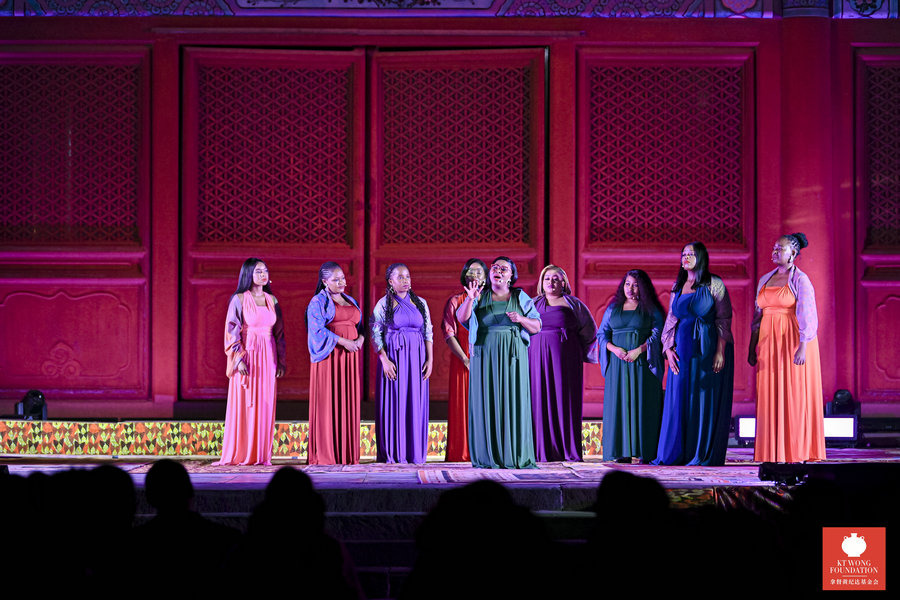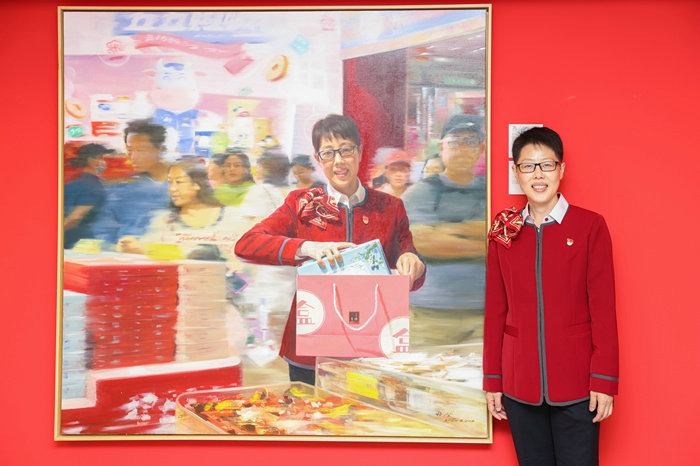Russian singer is lyrical about audiences


Vitas, the Russian singer known for his five-octave falsetto, performed to a full house at the National Exhibition and Convention Center in Shanghai on Saturday.
The concert featured his most celebrated repertoire including Opera #2 and The 7th Element, as well as a popular Chinese folk song The Tibetan Plateau.
Vitas, Vitaliy Vladasovich Grachyov, is arguably the most well-known Russian singer in China. His rise to fame started in 2006 when he was invited by China Central Television to participate in a gala show in celebration of the Year of Russia in China.
During the show, his incredibly high vocal range and eclectic musical style that combines genres like opera, techno and folk, as well as a falsetto floored theaudience and won him the nickname "prince of the dolphin tones".
Vitas, who last performed in China four years ago, will tour other cities including Beijing, Wuhan, Hubei province, and Guangzhou, Guangdong province, following the Shanghai leg.
"I have lost track of my shows in China, but the total number is definitely more than 150," the singer tells China Daily.

Vitas says his frequent visits to the country have allowed him to feel at home, and that he has been most impressed by the "charming etiquette" of Chinese audiences, who have been "kind, helpful, and are always smiling''.
Earlier this year China and Russia reintroduced visa-free travel for group tourists in some border cities, and the singer is happy about that.
"The two countries are like brothers and family and this new policy will bring us even closer. I read about Russians crossing the border to have breakfast in China. I love Chinese food, too! Chinese food is delicious, and I hope the friendship between our two people will go on forever," he says.
Born in Latvia in 1979, the singer, who has Russian, Lithuanian and Jewish roots moved to Odessa, Ukraine, with his family when he was a child. He took on the name Vitas in his teenage years because he found his original name to be too long.
The start of his music career was difficult. After he was rejected by a musical college in Odessa, Vitas resorted to performing covers of Michael Jackson hits at night clubs. He was performing at an experimental theater when he was discovered by the Russian producer Sergey Pudovkin.

He was working for a youth television channel when his music video for Opera #2, in which the singer was portrayed as a lonely fish-human hybrid wearing artificial gills, premiered and garnered wide attention. This, he recalls, was the starting point of his series of successful concert tours in Russia and abroad.
During his tour of China in 2008, Vitas auctioned off some of his personal belongings and donated the proceeds to the regions affected by the earthquake in Sichuan province. He has also worked as an actor and appeared in several Chinese movies and TV shows.
Over the past few years, the singer has shifted his focus to family life. "I spent a lot of time taking care of my baby daughter, our third child. Now that she has started talking, I hope to turn my attention back to my career, so the children can be proud of me," says the singer. To protect his voice, Vitas abstains from alcohol and drinks lots of juice.
"I have learned in China to always drink beverages warm. This prevents the coldness entering your body. It has proved very effective," he says





































